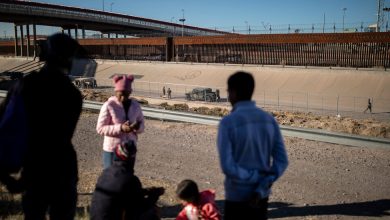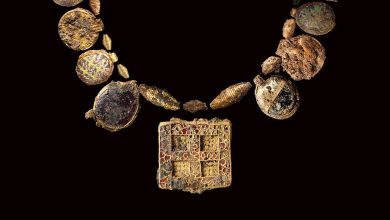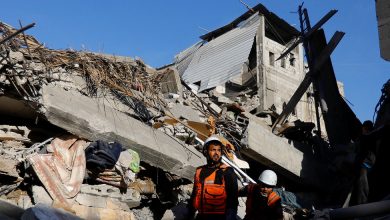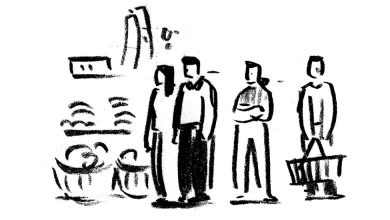How Hong Kong’s ‘Patriots Only’ Elections Bolster Beijing’s Grip

HONG KONG — On the surface, Hong Kong’s legislative election on Sunday is like any such poll the city has held, but its differences are stark. This time, candidates have been vetted by national security bodies. Several people have been arrested after calling for a boycott. Dozens of veteran pro-democracy figures, either in jail or in exile, are absent from the campaign trail.
The election will be the first since Beijing imposed a drastic overhaul of the political system to allow only “patriots” to run, tightening the governing Communist Party’s grip over the territory and leaving space only for the barest semblance of an opposition.
While the rules of Hong Kong’s elections were always in favor of Beijing’s allies, the new system eliminates even the slightest uncertainty of previous campaigns, and the establishment’s near-total control of the legislature is now guaranteed.
Still, the government is sparing no effort to show that the election is legitimate, even threatening foreign newspapers that suggest otherwise. Officials have exhorted voters to show up, but polls suggest that turnout could sink to a record low.
The opposition has been devastated by Beijing’s crackdown.
The last time Hong Kong held an election, the pro-democracy camp won a stunning victory, taking nearly 90 percent of the seats in the November 2019 vote for district councils. The vote, after months of antigovernment street protests, was a dramatic rebuke of Beijing’s authority.
The Communist Party has been determined not to see a repeat.
In January, the police arrested dozens of Hong Kong’s most well-known democracy advocates, saying their election platform amounted to a subversive plot against the government. Fourteen have been granted bail, but 33 remain in custody awaiting a trial that is not expected to begin until the second half of next year. Other opposition politicians have gone into exile, fearing arrest.
Those who have remained in the city’s pro-democracy parties were not participating in Sunday’s election. Some said they did not want to lend legitimacy to the process. The Democratic Party, the largest opposition group, said its members had no enthusiasm to run.
The few democracy backers on the ballot have toed Beijing’s line.
Only a few of all the candidates running this year have described themselves as “pro-democracy,” and they share one thing in common: They observe Beijing’s red lines.
They have avoided the sort of political stances that could lead to their disqualification or even imprisonment, such as calling for independence for Hong Kong or foreign sanctions against Hong Kong officials.
In Hong Kong’s new electoral landscape, the absence of the mainstream opposition has resulted in an odd political twist: Such outside candidates are being given some help by Beijing’s representatives and allies, who would in normal circumstances be their rivals. But the support is limited to helping them pass the rigorous nomination process to get on the ballot, not to winning votes on Election Day.
One pro-democracy candidate, Wong Sing-chi, said he believed it was important to fight for democracy by pursuing office, even if the system was flawed. If elected, he said, he would call for an amnesty for nonviolent protesters who have been sentenced to prison and a scaling back of the use of a national security law that has quashed dissent.
Mr. Wong, a former member of the Democratic Party, said he was asked twice this year by the Liaison Office of the Central People’s Government, Beijing’s increasingly assertive arm in the city, about whether he would run. But he said he made the decision to run on his own. After he did so, he was given a powerful boost by Lo Man-tuen, a prominent pro-Beijing voice on the election committee, who helped him secure enough nominations from the body to run.
“I am absolutely not their cup of tea, but they also want me to run so there will be some other voices,” said Mr. Wong.
Adrian Lau, who won a seat on the district councils during a pro-democracy wave in 2019, said he was running for the legislative council because some voters did not have faith in pro-Beijing politicians.
“They need at least one or two Legco members who would really help them,” he said.
Turnout is expected to be low, but Hong Kong’s leader says it’s OK.
With the establishment’s control of the legislative council a foregone conclusion, the biggest question in this race is whether the voters will turn out. That has emerged as something of an informal referendum on the new electoral system.
“Low voter turnout is clearly an indicator of Hong Kong society that is deeply divided,” said Sonny Lo, a Hong Kong political analyst. “The political wounds from the 2019 protests were deep and the scars still remain.”
The government has been aggressive in encouraging voters to participate, setting up polling stations at the border with mainland China for Hong Kong residents who want to vote without going through quarantine. Top government officers have called on citizens to turn out.
But Carrie Lam, Hong Kong’s chief executive, has argued that a low number of voters could be a sign of satisfaction with the government.
“There is a saying that when the government is doing well and its credibility is high, the voter turnout will decrease because the people do not have a strong demand to choose different lawmakers to supervise the government,” she told Global Times, a newspaper controlled by the Communist Party of China. “Therefore, I think the turnout rate does not mean anything.”
Regina Ip, a pro-Beijing lawmaker and government adviser, criticized the logic of Mrs. Lam’s analysis, noting that in the 2019 district council election, a record number of voters had turned out.
“Does that reflect a failure of her governance?” Mrs. Ip said at an election forum hosted by The South China Morning Post, a local newspaper. “If we pursue her argument to the logical end, one would draw that conclusion.”
The mere mention of boycotts has been met with arrests and threats.
The police have arrested at least 10 people, accusing them of encouraging people to not participate in the election or cast spoiled ballots.
Hong Kong courts have issued warrants for at least seven activists and politicians who now live overseas, including the former lawmakers Ted Hui and Nathan Law. Mr. Law, who is in Britain, is accused of making a speech at a web conference on Dec. 3 in which he urged voters to ignore the election. Mr. Hui, who is in Australia, urged voters to cast blank ballots.
The Hong Kong authorities also warned The Wall Street Journal that it may have broken the law with a November editorial that called the election a “sham vote.” The newspaper had said that “boycotts and blank ballots are one of the last ways for Hong Kongers to express their political views.” The government sent a similar warning letter to The Sunday Times of London over an article titled, “China shows its true colours — and they’re not pretty.”
The head of Hong Kong’s Independent Commission Against Corruption, which enforces the election law, warned that survey results from a prominent polling organization about potential turnout might also be illegal.
The organization, the Hong Kong Public Opinion Research Institute, had been attacked by government supporters after a recent survey showed that about 50 percent of respondents planned to vote in the election, the lowest-ever figure since the institute started asking the question in the early 1990s.





